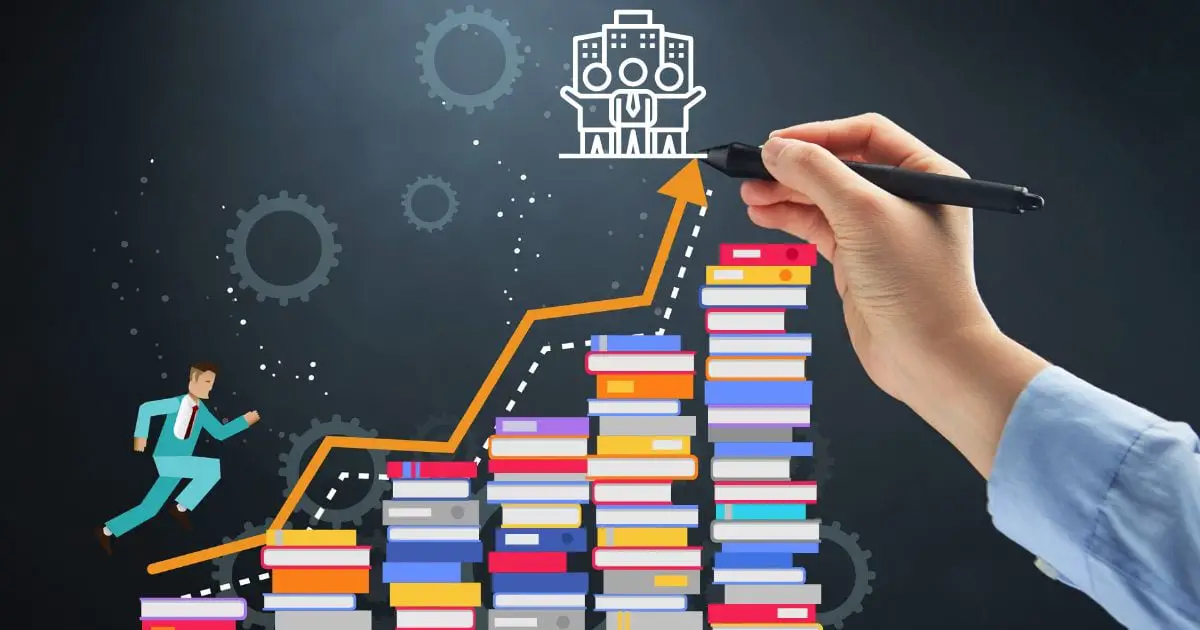Did you ever have the impact of having friends who struggle with reading, or imagined the trajectory of your own life had you not learned to read? In a world where literacy plays a fundamental role, understanding why learning to read is so important can offer profound insights into the challenges and opportunities it presents.
This comprehensive article probes the multifaceted difficulties that confront such individuals from various walks of life. It illuminates the profound impacts of their illiteracy and proffers insights on conquering these daunting hurdles.
Life is harder for illiterate adults, because it pose increasingly complex challenges, from a lack of job opportunities to stumbling through routine tasks with difficulty. From being unable to drive because of failing a driving test to struggling to read road signs, the challenges of illiteracy can permeate every aspect of life.
The stigma attached to being unable to read as an adult can be embarrassing and cause social discomfort. Essentially, lacking the ability to read can render one handicapped in navigating daily tasks, relying heavily on others for assistance. While I have friends who manage to navigate through life despite this hurdle, their journey is far from easy. Unfortunately, from personal observations, it’s evident that people with illiteracy often contribute to their dire situations, such as homelessness or relying on family for shelter.
1. Understanding the Impact of Illiteracy

Educational Barriers and Limited Opportunities
Research indicates that illiteracy imposes formidable obstacles to accessing both education and employment opportunities. Illiterate adults, lacking fundamental reading and writing skills, might face difficulties in pursuing further education or training. This limitation invariably curtails their career prospects. At least basic literacy skills prove requisite for numerous jobs, a circumstance that renders securing stable employment challenging indeed for those who are illiterate.
Prioritizing adult education access improvements must be the focus of efforts to address illiteracy. Through investment in accessible, inclusive initiatives like adult literacy programs, vocational training courses, and other flexible learning options, we can provide opportunities for those struggling with literacy to acquire essential skills at a pace that suits them best. In doing so, we empower more adults not only to conquer educational barriers but also to unleash their potential for personal and professional growth: a transformational process indeed.

Financial Struggles and Economic Disadvantage
Lower income levels and financial instability often correlate with illiteracy. The inability to read and write may present challenges in managing finances, comprehending critical documents such as bills or contracts, and utilizing financial services. A cycle of poverty can persist due to this economic disadvantage. Thus, making it increasingly challenging for adults lacking literacy skills to enhance their situations.
Mitigating the impact of illiteracy on economic well-being necessitates enhancing financial literacy. Programs in financial education, specifically those focusing on budgeting, saving, and comprehending financial products, have the potential to empower illiterate adults. They enable them to make informed decisions about their finances while also constructing resilience in terms of finance. When we equip individuals with vital knowledge and skills, it becomes possible for us to not only break down poverty cycles but also foster economic empowerment within populations grappling with illiteracy.
Social Isolation and Stigmatization
Social isolation and feelings of inadequacy often stem from illiteracy’s contribution. A society that values literacy may stigmatize and discriminate against adults who cannot read or write, thus decreasing their self-esteem and confidence. Further, this social isolation intensifies the difficulties already encountered by these individuals. Consequently, limiting both personal growth opportunities as well as professional development for the illiterate population.
Essential for combating the social stigma of illiteracy is our imperative to create inclusive communities. Initiatives promoting diversity, acceptance, and mutual respect can significantly diminish prejudice and discrimination against those who lack literacy skills. We foster a culture, characterized by inclusivity and understanding. Through this lens, we construct supportive environments where each member feels valued. They are empowered to participate fully in both economic life as well as societal interactions.
2. Changes in Daily Life

Illiterate Adults Difficulty in Navigating Technology
Today’s digital age critically necessitates technology’s involvement in diverse life facets, communication, and essential service access, to name a few. However, illiterate adults might encounter challenges harnessing this technological power. They could struggle with effective computer, smartphone, or device use. Thus, impeding basic task performance like online banking participation, job prospect searches, and even information access itself.
The digital divide intensifies the obstacles illiterate adults confront in navigating technology. As our society leans more heavily on digital platforms for communication and information, those lacking sufficient literacy skills stand a significant risk of being forsaken. To bridge this gap, we must undertake focused initiatives to offer these individuals comprehensive digital literacy training and support. Thus, guaranteeing their access to technology is not only feasible but also fully fruitful.
Health Literacy and Healthcare Access
The impact of illiteracy on health literacy manifests in the difficulty individuals face when attempting to comprehend crucial health information, instructions, or medication labels. Misunderstandings and errors in medication use often result from this challenge. Furthermore, delays may occur regarding seeking medical care, factors that ultimately detriment overall health outcomes. Concurrently with these implications for personal well-being is an additional issue: adult illiterates encounter barriers to accessing healthcare services because they struggle with form completion and understanding medical procedures.
Not only does enhancing health literacy necessitate the provision of written information, but it also demands clear and accessible communication that appeals to diverse literacy levels. Health providers can choose to utilize visual aids and verbal explanations; even interactive tools are effective in conveying crucial health information. By adopting a patient-centered approach while accommodating varying literacy needs, healthcare organizations promote superior health outcomes and guarantee equitable access for all individuals, irrespective of their respective levels of literacy, to healthcare services.
Parental Challenges and Family Dynamics
Intergenerational effects can result from illiteracy, impacting the individual and their families. This is a noteworthy concern. Struggles may arise for parents who are illiterate in aiding their children with homework or participating in educational engagement, potentially perpetuating an ongoing cycle of disadvantage. Within the family unit, communication barriers could emerge, directly impacting relationships and overall dynamics.
A holistic approach, encompassing both parents and children, is necessary to address illiteracy within families. Programs for family literacy pave the way for parents and their offspring to learn collectively. This fosters a supportive learning environment that spurs the development of literacy skills across multiple generations. Empowering parents with educational support tools and resources enable us to shatter the intergenerational cycle of illiteracy while forging more robust resilient families in its wake.
3. Overcoming Challenges and Empowering Change

Adult Literacy Programs and Education Initiatives
Through adult literacy programs and educational initiatives, we can effectively combat illiteracy. These tailored instructions offer crucial support to enhance essential reading, writing, and even numeracy skills. They empower individuals with the necessary tools for a more prosperous life. By enabling further education pursuits and unlocking better employment opportunities, these programs not only improve their recipients’ quality of life but also instill confidence in them.
Adult literacy programs not only provide fundamental reading and writing skills. They also concentrate on broadening educational access, a crucial facet of equity in learning. These initiatives place a premium on penetrating marginalized communities such as immigrants, refugees, and individuals with disabilities. This approach guarantees that all members of society have an equal chance to acquire knowledge and thrive. Consequently addressing systemic barriers to education, be it resource shortages or language hurdles, these programs champion inclusivity by equipping people with the power of full societal participation.
Community Support and Outreach Efforts
In addressing the challenges illiterate adults face, community support crucially plays a role. Efforts to reach out, with the aims of raising awareness about literacy’s importance and providing support services, can significantly assist individuals in overcoming learning barriers. By collaborating, community-based organizations, libraries, and local government initiatives can foster inclusive environments. These are places where adult learners who struggle with literacy feel not just supported but also encouraged to improve their reading abilities.
Community support initiatives go beyond the provision of direct services. They empower grassroots advocacy efforts to tackle illiteracy’s root causes. Mobilizing community members for policy change, enhanced funding for literacy programs, and heightened awareness of literacy issues is their primary function. Community advocacy, through its pivotal role in amplifying voices affected by illiteracy, not only shapes systemic alterations but also champions literacy as an essential human right.
Cultivating a Culture of Lifelong Learning
To address illiteracy and empower individuals fully, we must promote a culture of lifelong learning. Continuous learning opportunities like adult education classes, vocational training, or community workshops inspire personal and professional development in illiterate adults. By nurturing curiosity and growth-oriented mindsets within communities, they can then construct pathways for individuals to transcend the constraints of illiteracy, prospering in every facet life offers.
Lifelong learning initiatives underscore the importance of intergenerational learning within families and communities. By promoting literacy activities, and educational opportunities for individuals across all age groups, these programs foster a culture of learning that surpasses generations. Families, through shared experiences and mutual support, can create supportive environments where they value and cultivate literacy skills. This leads to positive outcomes not only for individuals but also for their respective communities.
4. Addressing Emotional and Psychological Well-Being

Impact on Mental Health
Mental health often bears the burden of illiteracy, as it contributes to feelings such as frustration, shame, and anxiety. Further still, a person’s inability to read and write might give rise to an overwhelming sense of inadequacy. This in turn affects overall well-being significantly by fostering low self-esteem. Moreover, adults grappling with literacy issues may confront increased stress levels because they struggle more intensely in accomplishing daily tasks. Consequently, these challenges can act as potent exacerbators for their already, tenuous mental health situation.
Illiteracy’s impact on mental health extends beyond its emotional toll. It can manifest in various ways. Studies reveal a higher risk of depression and anxiety disorders among illiterate individuals compared to their literate counterparts. This suggests a significant correlation between literacy, or lack thereof, with psychological well-being. The persistent struggle these individuals face, understanding written information and executing basic tasks, often cultivates not only frustration but also feelings of helplessness leading to ongoing psychological distress.
Breaking the Stigma and Seeking Support
To promote emotional well-being, one must crucially overcome the stigma associated with illiteracy. This can be achieved by encouraging open dialogue and destigmatizing discussions specifically around literacy. Offering access to mental health resources like counseling services or support groups provides invaluable emotional support for illiterate adults in their pursuit of enhanced literacy skills. It’s a significant step towards self-improvement and empowerment.
A multi-faceted approach, one involving community education, awareness campaigns, and advocacy efforts, is necessary to tackle the stigma associated with illiteracy. Society must challenge its stereotypes and misconceptions about literacy. Only then can it forge a more inclusive environment in which individuals feel empowered and unafraid of judgment or discrimination to seek help. Breaking these barriers promotes not just emotional well-being. It also fosters an empathetic society that is more supportive overall.
Building Resilience and Coping Strategies
Managing the emotional impact of illiteracy necessitates one to develop coping strategies and resilience. To build this resilience, it is essential to identify strengths, establish achievable goals, and view setbacks as growth opportunities. Learning effective coping mechanisms, including mindfulness techniques, problem-solving strategies, or seeking social support from friends and family members, can significantly benefit illiterate adults.
Cultivating resilience demands a gradual process involving the virtues of patience, self-awareness, and perseverance. It isn’t an instantaneous achievement. Focusing on personal strengths while constructing a robust support network empowers illiterate adults to develop the necessary resilience. This enables them not only to confront but also navigate through life’s myriad challenges with enhanced confidence and adaptability.
Moreover, acquiring practical coping strategies, despite the hurdles presented by illiteracy, empowers individuals. They can effectively manage stress, cope resiliently with setbacks, and maintain an unwavering positive outlook on life.
5. Navigating Legal and Civic Responsibilities

Understanding Legal Documents and Rights
Understanding legal documents and exercising civic rights can present challenges for illiterate individuals. Adult illiterates might find it difficult to grasp crucial legal forms, contracts, or government regulations. This potential incomprehension exposes them to possible exploitation or misunderstandings in the law. By providing access to resources that promote legal literacy and offering advocacy services, we empower these people not only with the ability to navigate complexities of legality but also assert their rights effectively: a truly transformative process.
Not only do you need literacy skills, but also a profound comprehension of legal terminology and concepts to navigate the intricacies of legal documents. Illiterate individuals might encounter challenges in decoding complex language and understanding the implications of these agreements.
Furthermore, their capacity to pursue legal advice or representation can suffer due to their lack of literacy. This compounds their vulnerability concerning law-related issues. Efforts to prioritize the promotion of legal literacy should focus on providing illiterate adults with tailored, accessible information and resources: this strategy will enable them to effectively safeguard their rights and interests.
Civic Engagement and Participation
Civic engagement and community participation may suffer due to limited literacy skills. Illiterate adults could experience exclusion from voting, public meetings involvement, or advocacy efforts because they struggle with understanding written information and expressing their opinions effectively. By promoting inclusive civic education initiatives, along with providing accessible information, we can foster increased participation among these individuals in democratic processes. Thereby, enhancing representation.
Civic engagement proves its effectiveness not merely through a vote cast. It encompasses dynamic involvement in community decision-making processes and fervent advocacy for social change. Those who are illiterate often encounter obstacles to accessing information about civic issues, comprehending the ramifications of policy decisions, and voicing their concerns with efficacy. Communities can equip these adults powerfully by offering alternative forms of civic education, oral presentations, or interactive workshops, thereby enabling them to make active contributions to public discourse while pushing forward policies that mirror their needs and interests.
Access to Justice and Legal Support
Safeguarding the rights of illiterate adults necessitates ensuring their access to justice and legal support. Services such as legal aid, pro bono assistance, and community clinics can offer invaluable help to individuals confronting legal hurdles or traversing the complex terrain of the justice system. We empower these illiterate adults effectively by promoting equitable access to such resources. Thus, enabling them not only to seek but also to uphold their rightful claims in a court of law.
All individuals, irrespective of their literacy level, should have accessible and fundamental rights to justice. Illiterate adults might face numerous hurdles in accessing legal support, ranging from comprehending court procedures to completing necessary forms. Consequently, we must tailor our legal assistance programs for these clients by offering alternative communication methods and support services so that they can voice their concerns effectively. More importantly, this will safeguard their rights within the judicial system.
Conclusion
To wrap it all up, illiterate adults often grapple with a plethora of challenges in education, employment, and daily life. However, understanding the profound impact of illiteracy and implementing targeted interventions empower these individuals to conquer such difficulties. By prioritizing education and fostering an unwavering commitment to lifelong learning, we can strive towards an inclusive society where each person has equal opportunity for growth regardless of their level of literacy.






